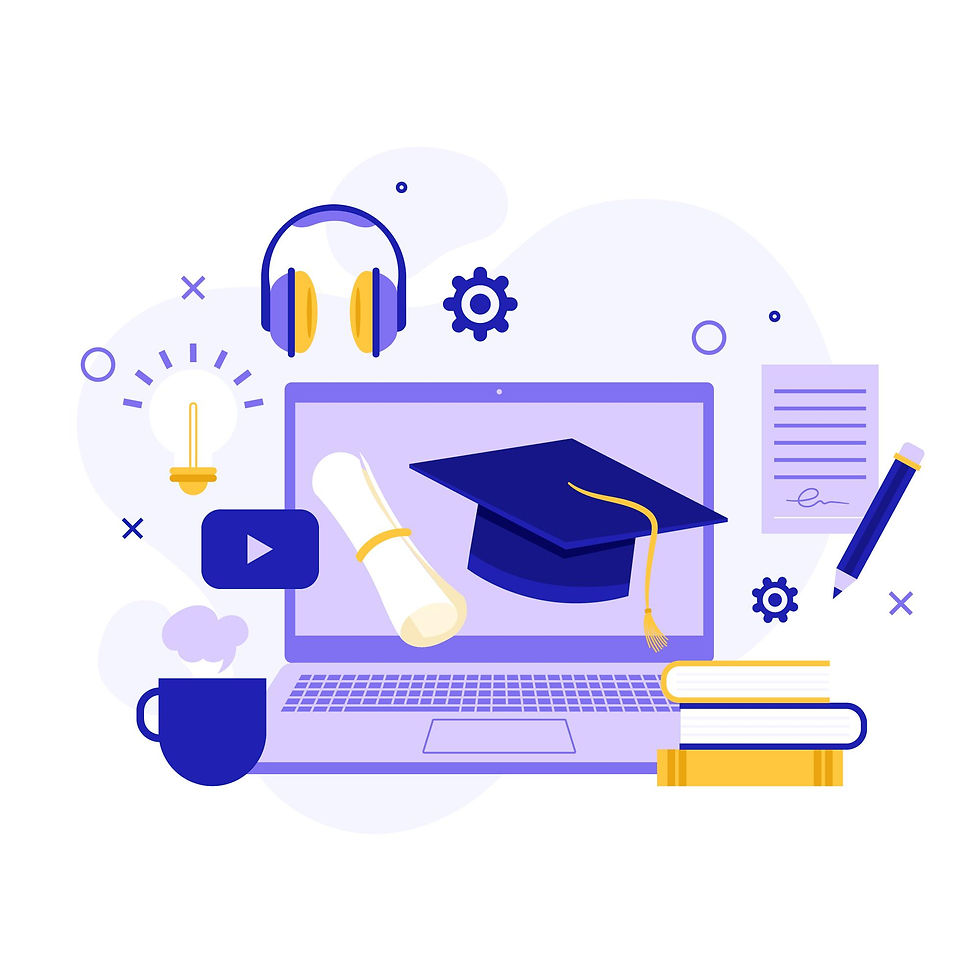

Make Training More Effective, Engaging, and Aligned with Your Goals
Let’s face it—off-the-shelf training often doesn’t meet your specific needs. That’s why we create custom learning experiences that are tailored to your business objectives, ensuring that every
learner gets exactly what they need to thrive.
Why Custom Learning?

Aligning with Your Business Objectives
We design training that directly supports your goals—whether it's increasing productivity,
driving innovation, ensuring compliance, or enhancing company culture.

Target Skill Gaps
Our tailored programs identify and close the skill gaps that matter most to your organization,
empowering your team with the competencies they need to succeed.

Reflect Your Brand & Culture
Training that speaks to your team’s unique identity. We design content that mirrors your brand’s
voice, values, and culture to ensure relevance and engagement.

Maximize Learner Engagement&
Retention
We blend storytelling, interactivity, and new-age methods to keep learners motivated and improve retention.
Our Approach
Discover Needs & Objectives
We begin by understanding your organization’s specific needs through stakeholder interviews
and a thorough gap analysis to ensure we’re aligned with your strategic priorities.
Craft Learning Strategies
From there, we develop clear learning objectives, determine the best delivery methods, and build content outlines to ensure a well-rounded learning experience.
Develop Engaging Content
Our content creation team designs rich, context-driven learning materials that are interactive, relevant, and aligned with the desired outcomes.
Instructional Design Excellence
Utilizing proven instructional models, we craft effective learning experiences that encourage deep engagement and measurable success.
Deliver Seamlessly Across Platforms
We ensure smooth delivery across your preferred learning management systems (LMS) or hybrid
environments, optimized for both desktop and mobile users.
Measurement & Optimization
Continuous tracking of learner engagement and
business impact for ongoing improvements.
Levels of Immersion and Interactivity
Level 1 Basic (Passive Interactivity)
Level 1( Basic)
Description: Simple, text-based courses with minimal interactivity.
Features: Text, images, basic navigation, and simple quizzes.
Best for: Compliance training, straightforward informational content.
Development Effort: Low; quick to produce.
-
Page-turner courses offer a straightforward learning experience, including:
-
Static slides with audio, images, and tables
-
Links to videos, podcasts, and additional resources
-
Simple activities like true/false or multiple-choice questions
-
Linear content flow with easy navigation
-
Learners read and listen before moving to the next slide
-
Basic level of interactivity with minimal engagement
Level 2 Interactive (Limited Interactivity)
Level 2 (Interactive)
Description: Moderate interactivity with animations and multimedia elements.
Features: Clickable elements, simple animations, basic assessments, and audio narration.
Best for: Product training, soft skills development, and conceptual learning.
Development Effort: Medium; requires more time for design and development.
-
Level 2 courses offer more engagement, giving learners greater control and involvement. Features include:
-
Click-to-reveal interactions (timelines, hotspots, drag-and-drop)
-
Personalization with avatars and learner names
-
Simple animations and videos
-
Open navigation for free exploration
-
Interactive assessments (drag-and-drop, matching, fill-in-the-blanks)
-
Media and audio to improve retention and reduce text overload
Level 3 Immersive (Complex Interactivity)
Level 3 (Immersive)
Description: High interactivity with immersive experiences.
Features: Simulations, branched scenarios, game-based elements, and customized interactions.
Best for: Decision-making training, skill-based learning, and complex processes.
Development Effort: High; involves detailed instructional design and programming.
Level 3 eLearning takes engagement to the next level with more complex interactions and personalized experiences. Key features include:
-
Immersive activities that foster empathy and creativity, such as storytelling and play
-
Watch-Try-Do simulations and gamified elements (levels, points, and leaderboards)
-
Customized visuals, including characters and graphics relevant to the content
-
Dynamic animations and animated videos to enhance learning
-
Interactive assessments using real-world scenarios and simulations
-
Personalization through open navigation, learner stories, and tailored feedback
-
Engaging storytelling with scenarios, case studies, and comic strips, featuring animated characters and dynamic settings
